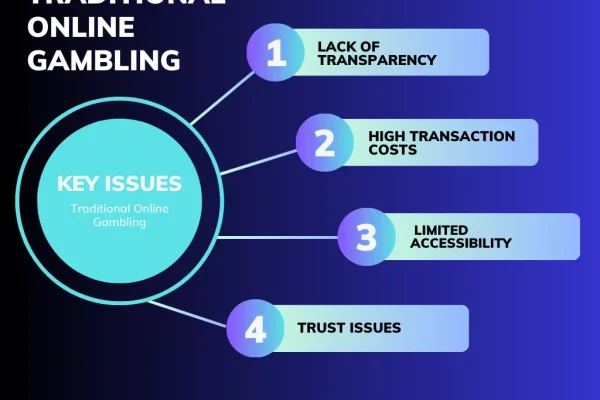Let’s be honest. The world of gambling law is a tangled web. What’s a harmless flutter in one country can land you in serious hot water just across the border. For players and operators alike, understanding this patchwork of rules isn’t just helpful—it’s absolutely critical.
Think of it like driving. In the UK, you drive on the left. In the US, on the right. You wouldn’t just hop in a car in a new country without checking the local rules first, right? The same logic applies tenfold to gambling. So, let’s dive into the complex, often contradictory, landscape of regional gambling regulations.
The European Chessboard: A Mix of Monopolies and Open Markets
Europe presents a fascinating, fragmented picture. There’s no single “European gambling law.” Instead, it’s a chessboard where each country has made its own move.
The UK: A Regulated Open Market
The United Kingdom is often seen as the gold standard for liberalized online gambling regulation. The UK Gambling Commission (UKGC) oversees a competitive, open market. The key here is licensing. If an operator wants to offer services to British citizens, it must hold a UKGC license. This ensures player protection, fair play, and contributes to vital funds for responsible gambling initiatives. It’s a system built on consumer safety first.
Scandinavia: The State Monopoly Model (in Transition)
For years, countries like Sweden, Norway, and Denmark relied heavily on state-owned monopolies (think Svenska Spel or Norsk Tipping). The idea was to control gambling and direct profits to public causes. But the internet blew that model wide open.
Recently, there’s been a shift. Sweden, for instance, moved to a licensed system in 2019. It’s a hybrid now—state-run companies compete with private, licensed operators. But the regulations are notoriously strict, with tight limits on bonuses and aggressive advertising rules. It’s a constant tug-of-war between control and competition.
Across the Pond: The United States’ Piecemeal Approach
If Europe is a chessboard, the US is a giant, unfinished jigsaw puzzle. The repeal of the federal PASPA law in 2018 didn’t create a national framework. Instead, it handed the power to each individual state. The result? A bewildering patchwork of state-by-state online gambling regulations.
Here’s a quick snapshot of the current pain points and trends:
| State Approach | Examples | Key Characteristic |
| Full Legalization | New Jersey, Pennsylvania, Michigan | Legal online casinos, poker, and sports betting. Robust licensing. |
| Sports Betting Only | Illinois, Colorado, Virginia | Online sportsbooks are legal, but online casinos remain prohibited. |
| Pending or Limited | California, Texas, Florida | Complex political and tribal compacts slow progress to a crawl. |
For operators, this means navigating 50 different potential rulebooks. For players, it means your location within the US—sometimes down to your exact GPS coordinates—dictates what you can and cannot legally play. It’s a logistical headache, but it also creates a dynamic, evolving market.
Asia-Pacific: A Study in Extremes
Honestly, no region showcases the extremes of gambling law like Asia-Pacific. The regulatory frameworks here range from the wildly permissive to the utterly prohibitive.
Macau: The Gambling Colossus
Macau is the undisputed king of gambling revenue, dwarfing even Las Vegas. It operates on a concession system, where a handful of powerful companies are granted the right to run casinos. The government tightly controls everything. It’s a legal, booming, and highly concentrated industry, but one that exists almost in a world of its own.
Mainland China & Singapore: Controlled Access
Mainland China presents the other end of the spectrum. All gambling is illegal for its citizens. Period. The government blocks offshore gambling websites and pursues operators aggressively. Yet, paradoxically, Chinese high-rollers power Macau’s economy.
Singapore offers a fascinating middle ground. It legalized casinos in 2010 but with a brutal set of social safeguards. Locals pay a steep entry levy to discourage frequent play. It’s a system that says, “You can, but we really don’t think you should.”
Emerging Markets: The Digital Gold Rush
Then you have the new frontiers. Latin American countries like Colombia and Argentina (specifically Buenos Aires province) have established regulated online markets. They’re attracting international operators with a more streamlined, though still strict, licensing process.
Africa, too, is a continent of immense potential, with countries like South Africa and Kenya grappling with how to regulate a massive, often informal, betting culture. The challenge here is building a regulatory framework from the ground up, often with limited resources.
Why This All Matters: The Core Tensions
So, after this whirlwind tour, what are the big takeaways? Well, every region’s legal framework is a balancing act. They’re all trying to juggle a few key things:
- Consumer Protection: Shielding players from fraud and addiction.
- Revenue Generation: Taxing a highly profitable industry.
- Market Control: Deciding between state-run monopolies or competitive private markets.
- Social Morality: Reflecting cultural attitudes toward gambling itself.
There’s no perfect system. The liberal UK model worries about problem gambling rates. The US model is fragmented and confusing. Monopoly systems struggle to combat black markets. It’s a constant process of trial and error.
In the end, the global map of gambling law is more than just a list of do’s and don’ts. It’s a living document of culture, economics, and technology colliding. As the digital world makes borders more porous, the pressure on these regional frameworks will only intensify. The question isn’t whether the rules will change—they always do—but who will be ready to adapt.












